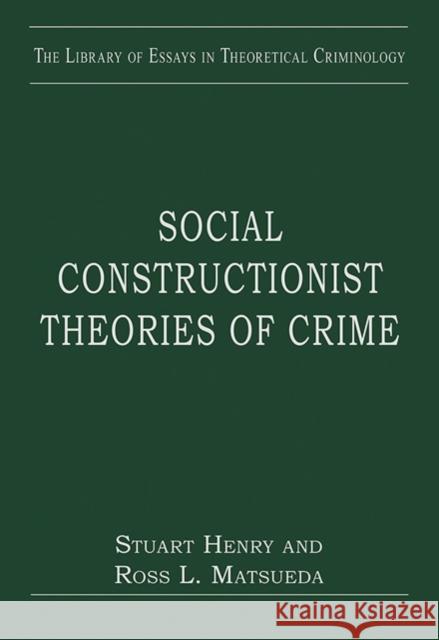Social Constructionist Theories of Crime » książka
Social Constructionist Theories of Crime
ISBN-13: 9781409419617 / Angielski / Twarda / 2015 / 416 str.
Social Constructionist Theory has become a transcendent perspective appearing in a variety of disciplines from sociology, psychology and psychotherapy, to geography, political science and post-modernism. It integrates the symbolic interactionist tradition of social psychology with the labeling theory from the sociology of deviance, and with sociological phenomenology, to provide insight into the ways social interaction becomes objective social reality, constitutive of social institutions and culminating in social structure. When applied to crime and justice, as in this volume, the theoretical penetration of mundane activities allow us to see how crime, justice and penalty emerge as anchoring concepts, while also showing the arbitrary nature of these social formations that have such an important impact on everyday people's lives. The volume is organized to examine: the classical roots of constructionist theory in the work of Alfred Schutz and popularized by Berger and Luckmann; its applications to the sociology of deviance though the works of Becker and Goffman; and the important deviations into the methodology made by Garfinkel as well as reflections on its current standing in criminological theory.











